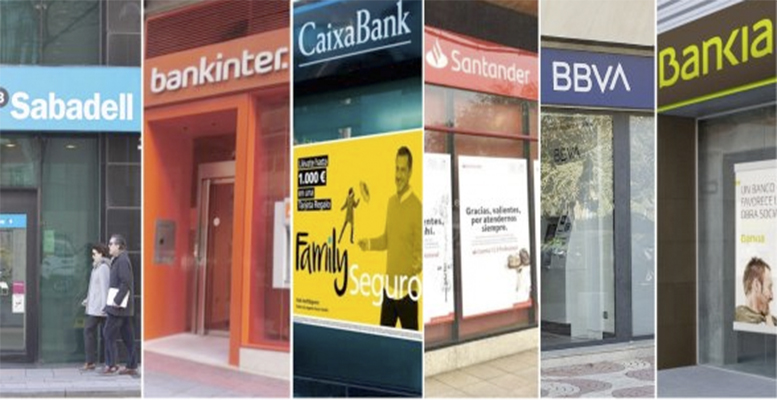CdM | Despite adhering to international initiatives, since 2016, the top 60 banks worldwide have dedicated a total amount of $3.8 trillion to fossil fuels. The financing of fossil fuel projects and companies results in GHG emissions incompatible with the economic decarbonisation needed to limit global warming to around 1.5ºC. In the case of Spanish banks, Bankia, Bankinter, BBVA, CaixaBank, Banco Sabadell and Banco Santander have signed up to this type of initiative. However, according to the RAN and BankTrack report, Banco Santander has financed fossil fuels between 2016 and 2020.
In a February 2021 report, the International Institute for Law and Environment (IIDMA) analysed the sectoral policies of the six leading Spanish banks to determine whether their commitments were sufficient to meet the Paris Agreement targets. Given the shortcomings of those sectoral commitments, IIDMA made recommendations to Spanish banks. However, since that report, BBVA and Santander have been the only two banks that have significantly modified their commitments, mainly in the mining and energy sectors. Of note is the adoption by these banks of a commitment to gradually reduce their exposure to the thermal coal sector by 2030.
While BBVA and Santander’s new commitments on thermal coal demonstrate more ambition, it is essential that they prohibit financing for other fossil fuels. It should be recalled that the IEA warns of the incompatibility between the development of new oil and gas projects in the energy sector and the achievement of carbon neutrality by 2050. Therefore, Spanish banks should take on commitments to prohibit the financing of new oil and gas projects or companies that develop projects that are incompatible with the decarbonisation of the energy sector in line with the objectives of the Paris Agreement.
Lastly, BBVA and Santander have reinforced the ambition of their sectoral policies, even though they were already the most ambitious amongst Spanish banks. It is therefore essential that Bankinter and CaixaBank improve their sectoral commitments so that they are aligned with the Paris Agreement’s objectives. In the case of CaixaBank, the merger with Bankia has created a large banking institution that must commit to the fight against climate change. Finally, Banco Sabadell indicates it is defining sectoral standards, which will demonstrate the lender’s climate ambition.





